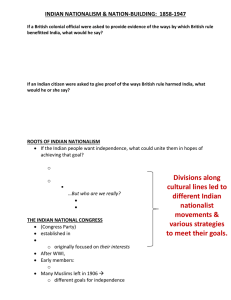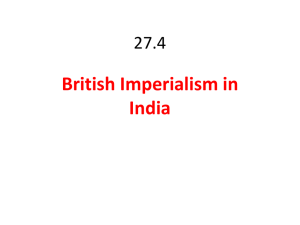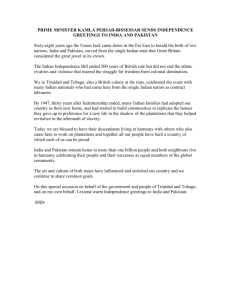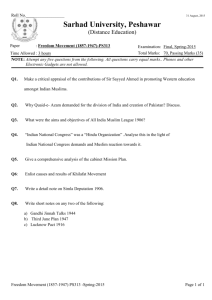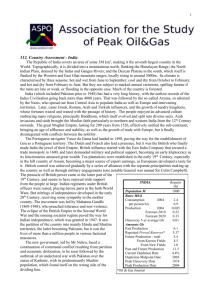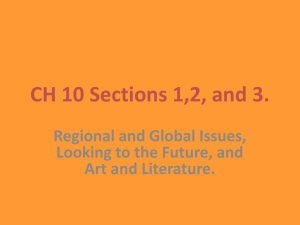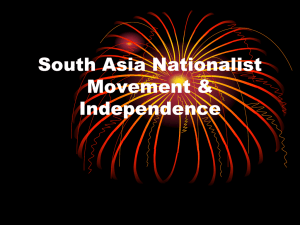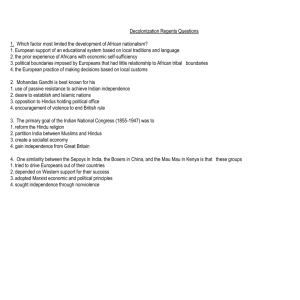Notes: British India
advertisement
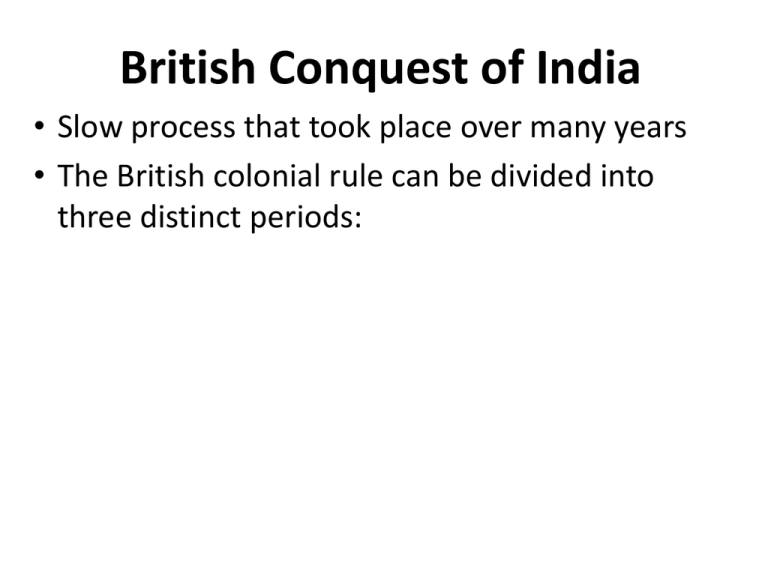
British Conquest of India • Slow process that took place over many years • The British colonial rule can be divided into three distinct periods: Initial Establishment (1608-1757) • The British East India Company was established in 1600 and given a monopoly on overseas trade • The British East India Company: English company formed for the exploitation of trade with East and Southeast Asia and India, • Starting as a monopolistic trading body, the company became involved in politics and acted as an agent of British imperialism in India from the early 18th century to the mid-19th century. • The company was formed to share in the East Indian spice trade Company Rule (1757-1857) • Describes the century long period during which the East India Company consolidated the economic and political power it had collected in the early years of conquest. • During this period, the British made significant improvements to India’s infrastructure, including railways, canals, telegraph lines and mail service. • These improvement benefited natives, but were mostly for done to help British political, military and economic affairs. British Raj - the former British rule of the Indian subcontinent - (1858-1947) • The Indian Mutiny of 1857 prompted the passage of the Government of India Act in 1858 • The 1905 partition of Bengal into East Bengal and West Bengal due to religion created a backlash among the Indian population and spurred the desire for independence and self-rule. • Partition: something that divides • The formation of the Indian National Congress and the Muslim League also heightened interest in independence. • The British colonial leader, Lord Louis Mountbatten, decided the only way to grant independence and avoid fighting was to divide the country into Hindu and Muslim sections. • On August 15, 1947, the British Raj was divided into the independent states of India, West Pakistan and East Pakistan and British rule ended. • Religion became the one factor that had the most important role in determining the nationalism of the people who chose to live in these new countries.

